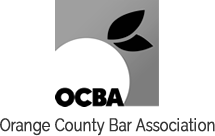3 Reasons a Trial Lawyer Should Retain an Appellate Specialist as Co-Counsel

This post is the second in an ongoing series about maximizing a party’s chances of prevailing on appeal. The trial is over, the verdict is in and the loser wants to appeal. Should the same lawyers who handled the trial also handle the appeal themselves or retain an appellate specialist as co-counsel? Consider the following benefits to retaining an appellate specialist:
1. For appellants, the trial lawyer’s arguments obviously were not persuasive at the trial level. Simply repeating the same arguments on appeal is not likely to succeed. Moreover, following the intense experience of going through trial, a second opinion may be warranted. As observed by Justice Kenneth R. Yegan in Estate of Kilkison (1998) 65 Cal.App.4th 1443:
[T]rial attorneys who prosecute their own appeals…may have ‘tunnel vision.’ Having tried the case themselves, they become convinced of the merits of their cause. They may lose objectivity and would be well served by consulting and taking the advice of disinterested members of the bar, schooled in appellate practice.
2. There is no substitute for the judgment of an appellate attorney who through experience is familiar with the types of arguments that have the best chance of succeeding. Statistically speaking, in California 80 percent of civil appeals result in no change to the judgment. Given these long odds, an appellate specialist can help a trial attorney identify the key issues most likely to be persuasive on appeal. As described by the United States Supreme Court:
There can hardly be any question about the importance of having the appellate advocate examine the record with a view to selecting the most promising issues for review. This has assumed a greater importance in an era when oral argument is strictly limited in most courts often to as little as 15 minutes and when page limits on briefs are widely imposed….A brief that raises every colorable issue runs the risk of burying good arguments those that, in the words of the great advocate John W. Davis, “go for the jugular,\” (Citation) in a verbal mound made up of strong and weak contentions.
(Jones v. Barnes (1983) 463 U.S. 745, 753).
3. For both appellants and respondents, trial lawyers are trained to handle witnesses in the courtroom, lay the foundation for the admission of documents and convince juries through impassioned closing arguments. Trial attorneys frequently are subject to time constraints while in trial and cannot devote the same time and objectivity that appellate attorneys can in reviewing trial transcripts and preparing appellate briefs. Appellate attorneys, have a different skill set. In writing for the First District Court of Appeal, Justice Needham recognized the different skills and time constraints faced by appellate attorneys:
[A]ppellate counsel is generally expected to perform \”additional research that trial counsel simply will not have had the time to do.\” (Citation.) As this appellate district explained over 50 years ago, \”[c]ounsel’s duty to assist the court includes a duty to study and to discuss the available authorities….\” (Citation.) Careful research by counsel allows us to \”have more confidence in the completeness and sufficiency of our own research….\” (Citation.)
(Alameda County Management Employees Assn. v. Superior Court (2011) 195 Cal.App.4th 325, 337 fn. 9).
Trial lawyers owe it to themselves and to their clients not to “wing it” with the appeal.
Jeffrey Lewis is a certified specialist in appellate law by the State Bar of California Board of Legal Specialization. Mr. Lewis and the other attorneys at Broedlow Lewis LLP are experienced appellate attorneys, who routinely appear in courts in Los Angeles, Orange County and San Diego and can advise you about your specific case. Each case is different and you should consult a lawyer rather than relying on this post as legal advice for your situation.








